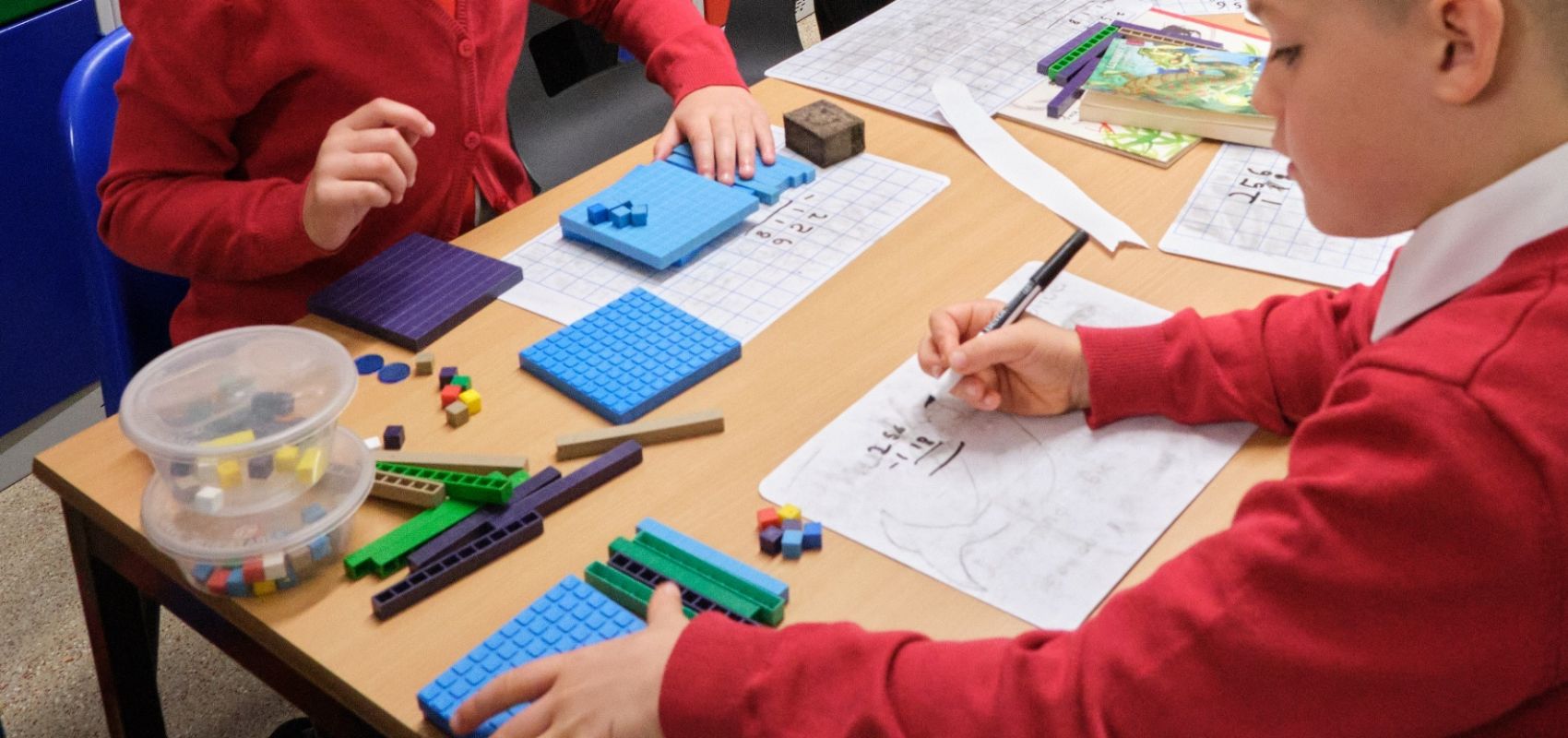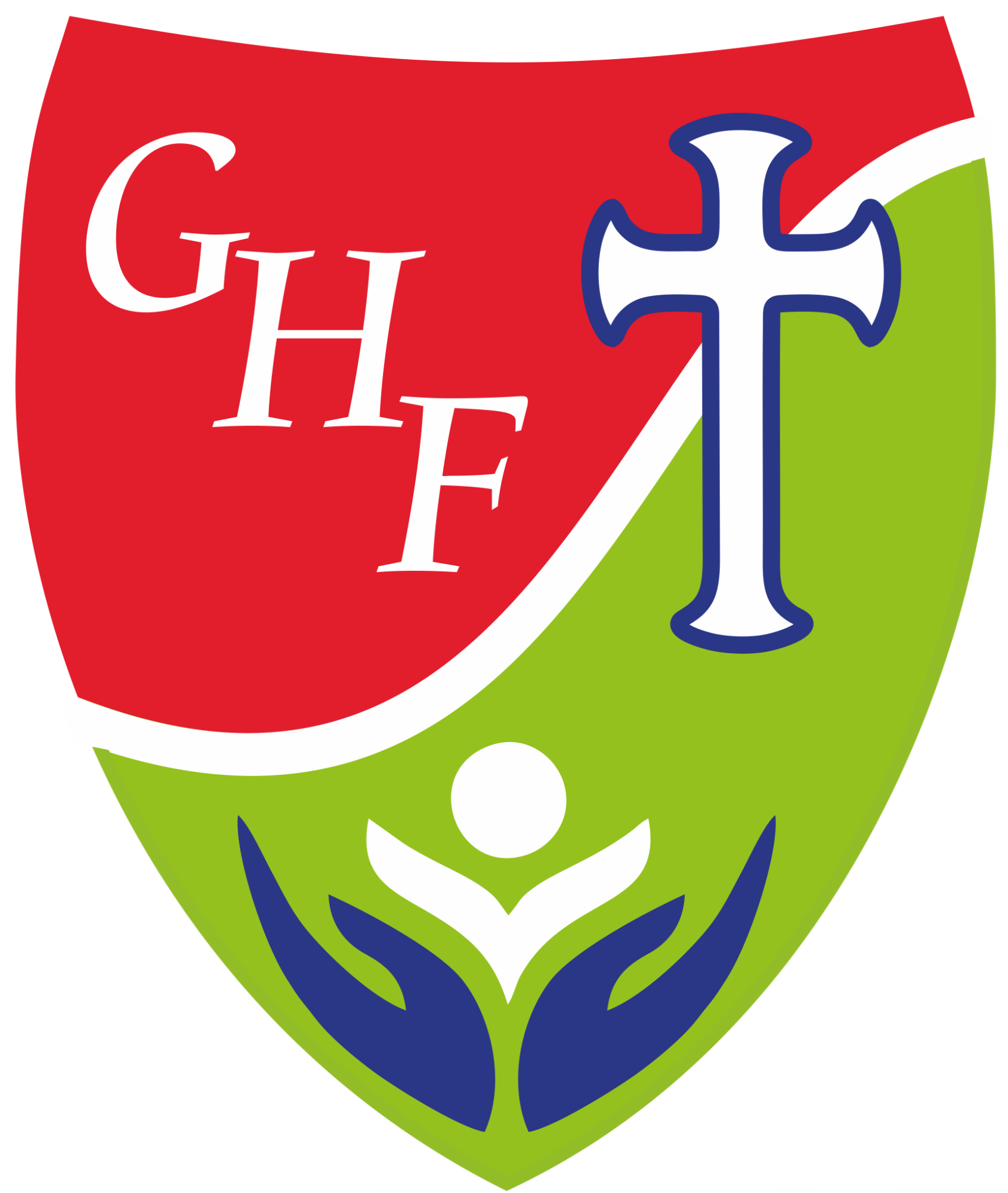Maths
Mathematics is extremely important in everyday life and our key aim is to ensure our children develop a positive attitude to maths. Maths lessons take place daily, following the National Curriculum. We aim to ensure children master key concepts with a deep understanding so that all children:
- become fluent in the fundamentals of mathematics, through varied and frequent practice, so that children develop conceptual understanding and the ability to recall and apply knowledge rapidly and accurately
- reason mathematically by following a line of enquiry, conjecturing relationships and generalisations, and developing an argument, justification or proof using mathematical language
- can solve problems by applying their mathematics to a variety of routine and non-routine problems with increasing sophistication, including breaking down problems into a series of simpler steps and persevering in seeking solutions
Number & Calculation
In EYFS the children will develop a strong understanding of number so that all children develop the necessary building blocks to excel mathematically. Children should be able to count confidently and develop a deep understanding of numbers to 10, the relationships between them and the patterns within those numbers. In KS1 they will be developing their understanding of whole numbers, place value, and the four operations, working with them mentally and practically to develop fluency. They will also memorise and internalise number bonds to 20 and the 2, 5 and 10 times tables and related division facts. In LKS2 the principal aim is for the children to become increasingly fluent with whole numbers and the four operations, including number facts and the concept of place value. They will develop efficient written and mental calculation methods, working with larger whole numbers. To improve their fluency, they will memorise the multiplication tables (up to 12 x 12) and related division facts. In UKS2 the focus will is to ensure all children extend their understanding of the number system and place value to include larger integers (whole-valued positive or negative number or 0). This will support their development and understanding of the relationships and connections made between multiplication and division with fractions, decimals, percentages and ratio. By the end of year 6 children should fluently use mental and written methods for the four operations (including long multiplication and division), fractions, percentages and decimals.
Geometry & Measures
EYFS children will have rich opportunities to develop and explore their spatial awareness of everyday shapes. The children will explore the concepts of measure through using a variety of practical resources. In KS1 they will learn to recognise, describe, compare, sort and name different shapes and their properties, using the correct related vocabulary. The children will describe and compare different quantities and will begin to use measuring instruments. In LKS2 they will develop their reasoning about shapes and their properties and confidently describe the relationships between them. The children will use measuring instruments with accuracy and make connections between measure and number. In UKS2 they will classify increasingly complex shapes and their geometric properties and learn the vocabulary needed to describe them. The teaching of measure will consolidate and extend knowledge developed in number and they will use measuring instruments with increased accuracy.
Problem Solving
In EYFS the children will be encouraged to solve simple everyday problems in a practical manner using a varied range of resources. In KS1 the children will be introduced to simple practical problems that involve the four operations. They will begin to solve them using concrete resources, pictures and drawings, as this will develop their ability to understand the concepts and strategies taught. In LKS2 the children will develop their ability to solve a range of problems that will also involve simple fractions and decimal place value. In UKS2 the children will develop their ability to solve a greater range of problems, including increasingly complex properties of numbers and arithmetic and problems that demand efficient mental and written methods of calculation. During year 6, the children will be introduced to language of algebra as a means for solving a variety of problems.
Reasoning
In EYFS the children will be provided with frequent and varied opportunities to build and apply their understanding so that they develop a secure base of knowledge and vocabulary from which mastery of mathematics is built. They will be encouraged to talk with adults and peers about what they notice and not be afraid to make a mistake. It is important that the children, at this critical stage, build positive attitudes and interest in mathematics and look for patterns and relationships, spot connections and ‘have a go’. In KS1 children are given frequent and varied opportunities to reason and explain, as they continue to build and use the correct vocabulary. They will be expected to read and spell mathematical vocabulary in line with their increasing word reading and spelling knowledge. In LKS2 they will be able to confidently read and spell correct mathematical vocabulary for a variety of problems, in line with their increased ability of word reading and spelling knowledge. In UKS2 children will use the correct terminology and pronounce it correctly in more complex problems to develop their ability to analysis, conjecture and generalise.
Children are encouraged to apply their skills across the curriculum in a range of subjects but particularly so in science, geography and technology.

